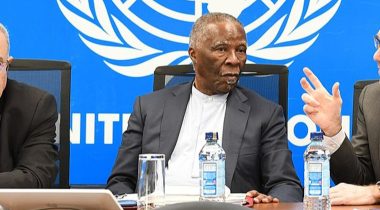
Nick Shaxson ■ Panama thumbs its nose at transparency – again

 We have on several occasions fingered Panama as a particularly recalcitrant secrecy jurisdiction: our recent Panama Narrative Report spills a fair number of beans in that respect. Its recalcitrance is perhaps hardly surprising, given the quantity of Colombian and Mexican drugs money believed to be sheltered there – to name just one part of the problem.
We have on several occasions fingered Panama as a particularly recalcitrant secrecy jurisdiction: our recent Panama Narrative Report spills a fair number of beans in that respect. Its recalcitrance is perhaps hardly surprising, given the quantity of Colombian and Mexican drugs money believed to be sheltered there – to name just one part of the problem.
Now, via Mark Morris, a list of conditions that Panama wants to impose on the international community before it provides any transparency:
“The commitment to the AEOI be developed on the basis of the following principles:
The exchange will be based on bilateral agreements without accepting external pressures regarding which countries should sign agreements;
Absolute reciprocity will be required to exchange information;
There must be equal to the level of all members of the Global Forum on Transparency and Exchange of Information and financial centers, in order to prevent the AEOI be used as a deterrent to affect the country’s competitiveness for the benefit of other financial institutions;
Existence of legal framework to protect the confidentiality, safe methods to protect the data backup, and to ensure that the information will be used appropriately and only for the purposes specified in agreements that support the AEOI;
Certainty that the countries with which agreements are signed in a position to protect basic guarantees users Panamanian platform services and not exposed to unreasonable risks of political, economic or personal security nature.
Any cooperation should always be in compliance with the fundamental principles of public international law.”
Read those carefully. Morris provides a detailed fisking: our summary would be this: this list is a finger (or two fingers, or a fist and forearm, depending on your cultural background) raised in the general direction of the international community and the rule of law.
Point 3 is a case in point: they won’t give out information until everyone else is fully on board: the devious old “level playing field” argument, which is a recipe for inaction. As Morris puts it:
“In effect, Panama is saying it won’t agree to the CRS until all 130 members of the OECD Global Forum on Transparency and Exchange of Information for Tax Purposes are doing automatic exchange of information. . . There are 130 members of the OECD Global Forum on Transparency, many of which are developing countries, such as Albania, Armenia, Azerbaijan, Botswana, Brunei, Burkina Faso, Cameroon, Costa Rica, Gabon, Ghana, Grenada, Guatemala, Kenya, Lesotho, Morocco, Niger, Pakistan, Trinidad and Tobago, Papua New Guinea, Samoa, Senegal, Tanzania and Uganda. The Common Reporting Standard does not include developing countries.”
Morris explains, based on established OECD positions, that this intransigence will not be accepted, and blacklisting can’t be far away. Throw the book at ’em.
Related articles

The Tax Justice Network’s most read pieces of 2024

Did we really end offshore tax evasion?
The State of Tax Justice 2024

Stolen Futures: Our new report on tax justice and the Right to Education
Stolen futures: the impacts of tax injustice on the Right to Education
31 October 2024
How ‘greenlaundering’ conceals the full scale of fossil fuel financing
11 September 2024

10 Ans Après, Le Souhait Du Rapport Mbeki Pour Des Négociations Fiscales A L’ONU Est Exaucé !
CERD submission: Racialised impacts of UK’s ‘second empire’

UN submission sets out racist impacts of UK’s ‘second empire’



Two questions
1 WHY does the CRS NOT include developing countries ? Surely money can be hidden there as well as anywhere ekse and nature abhirs a vacuum such that it will eventuall be filed.
2 If Kenya and nuclear power Pakistan are developing countries then why not Panama?
Oh and BTW POINT 2 ABSOLUTE RECIPROCITY.
THIS MEANS USA HAS TO ” OUT” ITS COSY TAX HAVEN STATES SUCH AS DEKAWARE INDUANA AND WYOMING .
CONTRARY TO POPULAR BELIEF INCOME AND ITHER TAXES DO EXUST IN THE USA THUS THE POINT REGARDING OTHER STATES NOT HAVING TO RECIPROCATE AS THEY DO NOT KEVY TAXES US SHOT DIWN IN THE US CASE AS IN THAT IF GRIFFIN I E CITY OF LONDON …